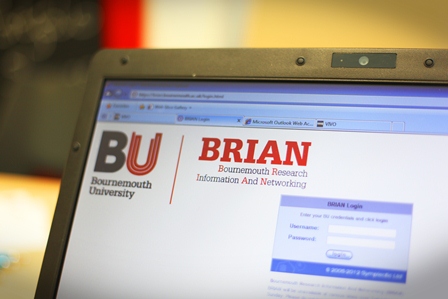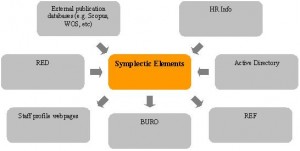 Reflecting on the experience of our recent mock REF exercise I noted that there were some negative views towards open access publishing that were expressed during the process. This is a little concerning considering the UK government is planning to make all outputs arising from publicly-funded research available via open access outlets by 2014 and considering the open access mandates the major research funders have as part of the terms of their grant funding (including the research councils, the Wellcome Trust and the European Commission). In addition, the four UK funding councils are currently consulting with the sector regarding their proposal to introduce a requirement for all outputs submitted to the post-2014 REF exercise to be published on an open access basis, wherever the concept of open access is relevant. As an institution and as individual researchers we need to ensure that we are able to comply with these requirements and that we are able to positively embrace open access publishing.
Reflecting on the experience of our recent mock REF exercise I noted that there were some negative views towards open access publishing that were expressed during the process. This is a little concerning considering the UK government is planning to make all outputs arising from publicly-funded research available via open access outlets by 2014 and considering the open access mandates the major research funders have as part of the terms of their grant funding (including the research councils, the Wellcome Trust and the European Commission). In addition, the four UK funding councils are currently consulting with the sector regarding their proposal to introduce a requirement for all outputs submitted to the post-2014 REF exercise to be published on an open access basis, wherever the concept of open access is relevant. As an institution and as individual researchers we need to ensure that we are able to comply with these requirements and that we are able to positively embrace open access publishing.
I did a bit of research and came across an excellent article by Peter Suber, Director of the Harvard Open Access Project. In the article, Peter addresses the common misunderstandings and misconceptions about open access publishing, many of which we part of the concerns raised during the recent mock REF exercises. I’ve selected the ones I most frequently hear and provided a summary below, and would urge you to read the article in full here – A Field Guide to Misunderstandings About Open Access.
1. “All open access is gold open access” – not at all! Gold open access refers to open access through journals and green open access is via repositories. Suber notes that researchers often overlook the existence of green open access or think they will not be permitted by their publisher to deposit a copy of their paper in an open source repository. At BU we have our own institutional repository, BURO, and BU researchers can add the full-text version of their papers via BRIAN. Suber notes that between 50-70+% of journal publishers give permission for postprint achiving in repositories. BRIAN will check the copyright of the publisher for you and let you know which version of your paper can be added to BURO. Easy peasy!
2. “Open access is about bypassing peer review” – not true! The goal of open access is to remove access barriers, not quality filters. Open access journals can, and usually do, use the same peer review processes, the same standards, and even the same reviewers as traditional print journals. Many traditional print journals offer an open access route as part of publishing in their journal (hybrid publishing).
3. “Authors must choose between prestigious publication and open access” – incorrect! There are two reasons why open access is compatible with prestige: a gold reason and a green one. First, a growing number of open access journals have already earned high levels of prestige, and others are earning it. Do your part to move things along as an editor, referee, reader, and as an author, by submitting your best work to suitable open access journals. In the meantime consider the second reason. Most traditional print journals allow open access archiving, such as in an institutional repository.
4. “Open access makes sense for second-rate work, but not for first-rate work” – again, not true! The idea behind this misunderstanding is this: the best work generally winds up in the best journals, where it has the best chance of being seen. At least it should be steered toward the best journals, where it will have the best chance of being seen. When we add the suggestion that this path doesn’t allow open access, or that open access can’t improve upon it, then an idea that was largely true becomes completely false. It assumes that the best journals are never open access (not true – Nature, Science and IEEE for example all offer open access options); that only journals can deliver open access (not true – green open access); that the best journals never allow open access archiving (not true – see SherpaRomeo, Science for example permits achiving of post-print of the publisher’s PDF); and that open access archiving can’t increase the visibility and impact of work published in the best journals (not true).
Suber notes 20 other common misunderstandings about open access and his article is well worth reading!
At Bournemouth University we are committed to supporting the open access movement and have been running the BU Open Access Publishing Fund for two years now and will continue into 2013-14. For information on accessing the Fund please visit this page – BU OAPF.
We’re interested to hear your thoughts on open access publishing! Have you tried it, are your sceptical, are you a supporter?






 The event opened with a fantastic presentation by
The event opened with a fantastic presentation by  The second speaker was
The second speaker was  The event then focused on BU’s experience of open access publishing with presentations from
The event then focused on BU’s experience of open access publishing with presentations from  I’d like to introduce you to
I’d like to introduce you to 












 Expand Your Impact: Collaboration and Networking Workshops for Researchers
Expand Your Impact: Collaboration and Networking Workshops for Researchers Visiting Prof. Sujan Marahatta presenting at BU
Visiting Prof. Sujan Marahatta presenting at BU 3C Event: Research Culture, Community & Can you Guess Who? Thursday 26 March 1-2pm
3C Event: Research Culture, Community & Can you Guess Who? Thursday 26 March 1-2pm UKCGE Recognised Research Supervision Programme: Deadline Approaching
UKCGE Recognised Research Supervision Programme: Deadline Approaching ECR Funding Open Call: Research Culture & Community Grant – Apply now
ECR Funding Open Call: Research Culture & Community Grant – Apply now ECR Funding Open Call: Research Culture & Community Grant – Application Deadline Friday 12 December
ECR Funding Open Call: Research Culture & Community Grant – Application Deadline Friday 12 December MSCA Postdoctoral Fellowships 2025 Call
MSCA Postdoctoral Fellowships 2025 Call ERC Advanced Grant 2025 Webinar
ERC Advanced Grant 2025 Webinar Update on UKRO services
Update on UKRO services European research project exploring use of ‘virtual twins’ to better manage metabolic associated fatty liver disease
European research project exploring use of ‘virtual twins’ to better manage metabolic associated fatty liver disease